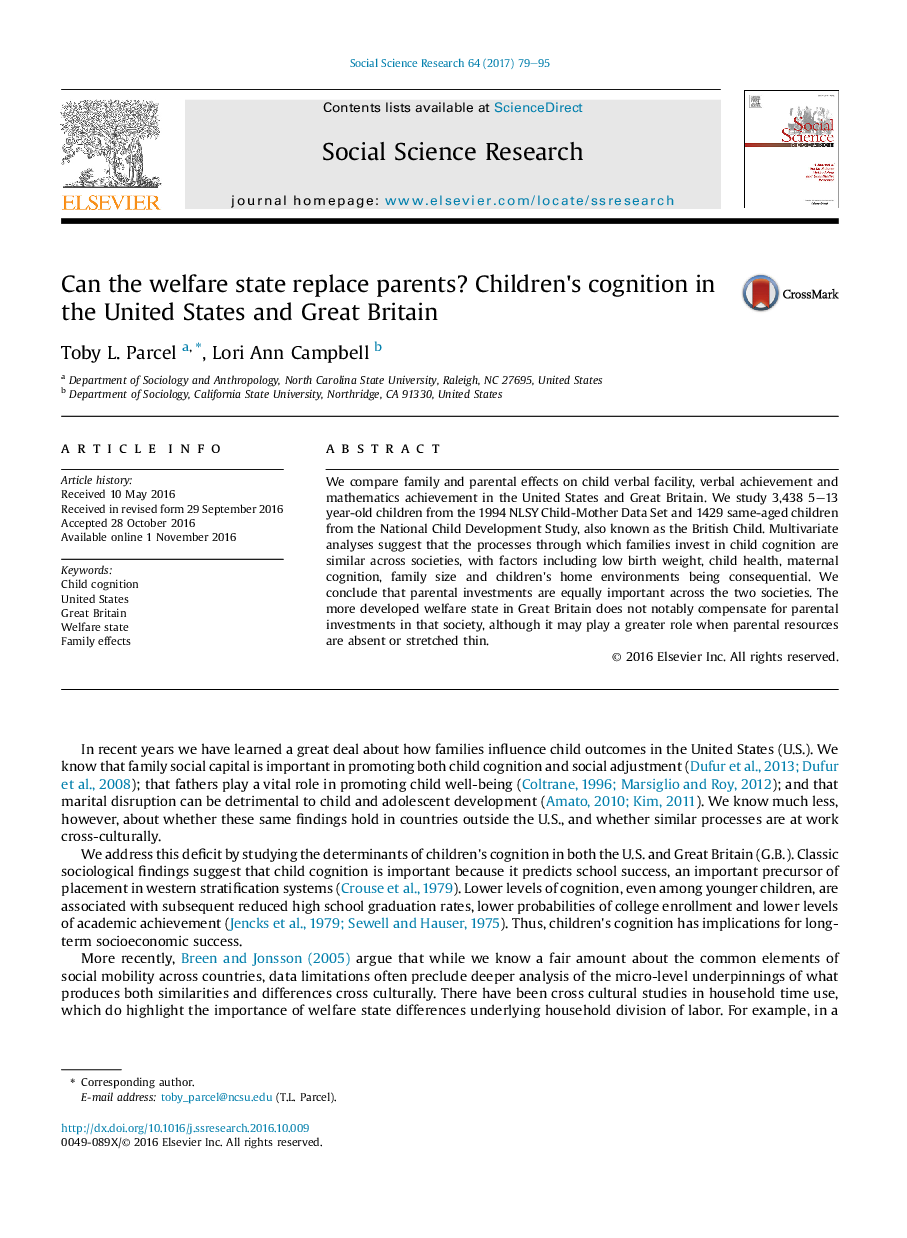| کد مقاله | کد نشریه | سال انتشار | مقاله انگلیسی | نسخه تمام متن |
|---|---|---|---|---|
| 5047132 | 1476111 | 2017 | 17 صفحه PDF | دانلود رایگان |
• How do parents and families influence child cognition?
• Does investment in child cognition vary between the United State and Great Britain?
• Maternal cognition and children' home environments are important in both societies.
• The British welfare state may be important when parental resources are absent or stretched thin.
We compare family and parental effects on child verbal facility, verbal achievement and mathematics achievement in the United States and Great Britain. We study 3,438 5–13 year-old children from the 1994 NLSY Child-Mother Data Set and 1429 same-aged children from the National Child Development Study, also known as the British Child. Multivariate analyses suggest that the processes through which families invest in child cognition are similar across societies, with factors including low birth weight, child health, maternal cognition, family size and children's home environments being consequential. We conclude that parental investments are equally important across the two societies. The more developed welfare state in Great Britain does not notably compensate for parental investments in that society, although it may play a greater role when parental resources are absent or stretched thin.
Journal: Social Science Research - Volume 64, May 2017, Pages 79–95
